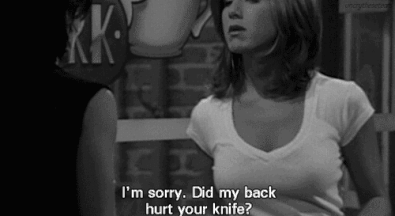Betrayal
Tantz_Aerine at May 18, 2019, midnight

This is a topic that Ozoneocean suggested to me and I have to say I'm quite intrigued to tackle it and start a conversation perhaps around the concept as a plot device but also as an issue of the relationship of the creators and the audiences.
Betrayal can be a very strong plot device, or it can be a cop out.
To have a character betray friends, family or a side in a fight, battle or war, there have to be clear motives established way before the actual betrayal takes place.
At the same time, the motives have to be analogous to the character's personality. The principle, in my opinion, is that anyone can betray, if given the right context and motivation, regardless of what that betrayal might to do them psychologically afterwards (if we assume that the character isn't actually committed to the deed).
The harder the person is to be tempted or convinced to betray, the higher the drama around that situation. And of course the fallout afterwards too is very dire, and bound to cause chain reactions.
Of course, just a high level of suspense and drama can be had with a person who doesn't at all mind betraying, and we watch them wreak havoc with their own machinations.
Whatever the case is, it has to be well established, rather than blindside the audience. Otherwise, it might feel that rather than the character betraying other characters, it is the authors betraying the audience.
A good part of that happens when the writing and buildup up to the key scene hasn't prepared the audience enough with the buildup to consider the action plausible. This is a big element for the current griping and huffing about the last episodes of Game of Thrones (which, I must admit is showing some real lack of preparations for their subversions). Had there been a proper progression of signs and hints that a character might make a U turn in their general alignments, then the audience would be frustrated at the character rather than the authors.
A great good example of a character doing not one but two betrayals and the audience not only rolling with it, but also being excited and buying into it: It's Zuko's arc in the animated series The Last Airbender. Zuko betrayed both sides he had been a part of, but every time he did it, there was genuine buildup and a direct connection to Zuko's motivations that remained powerful. He was also forgiven for the first betrayal, but he had to work a lot for that, too. It didn't just happen easily or outside the range of the characters' emotionality, background and intelligence.
The point I'm trying to make just going in the huge subject that is betrayal in art is that there's nothing you can't do with a character, provided you work for it a lot, and for a long time before you actually do it.
What do you think? Have you had any betrayals in your work?
Don’t forget you can now advertise on DrunkDuck for just $2 in whichever ad spot you like! The money goes straight into running the site. Want to know more? Click this link here! Or, if you want to help us keep the lights on you can sponsor us on Patreon. Every bit helps us!
Special thanks to our patrons!!

Justnopoint - Banes - Rmccool - Abt Nihil - Phoenixignis - Gunwallace - Cdmalcolm1 - Cresc - Pauleberhardt - Scruff - Dragonaur - Emma Clare - Dylandrawsdraws - Functioncreep - The D Wrek - Mks Monsters - Eustacheus - Dillycomics - Barrycorbett - Sinjinsoku - Smkinoshita - Jerrie - Chickfighter


Comments
Please login to comment.
Login or Register${ comment.author }} at
${ comment.author }} at